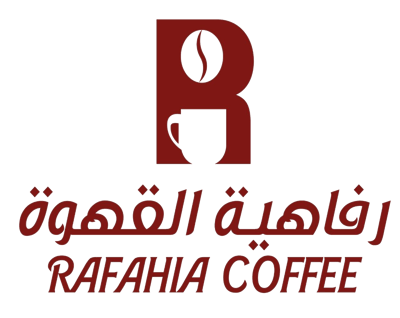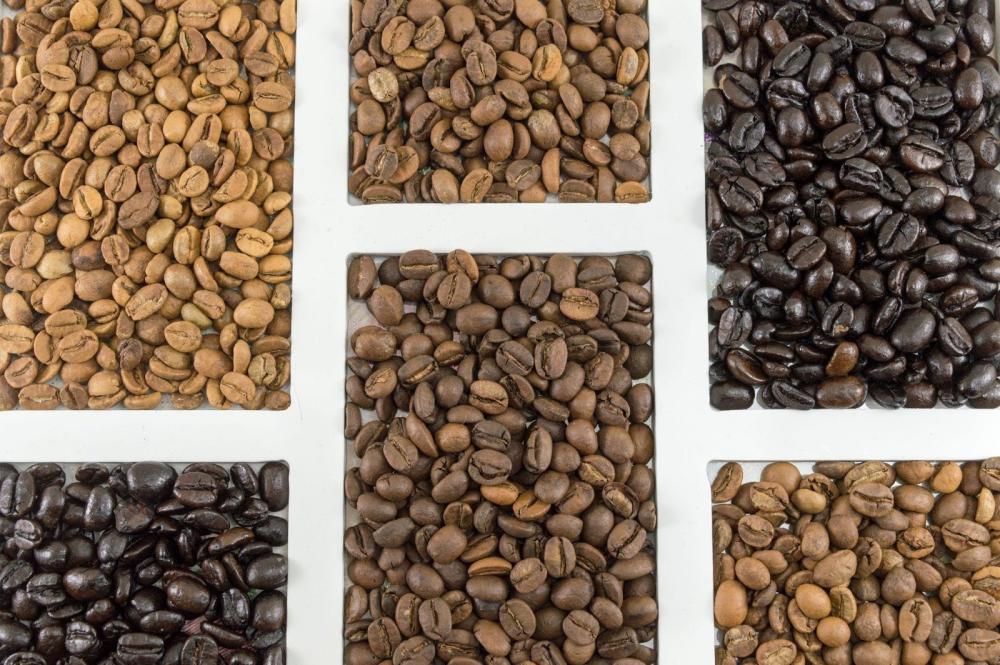The roasting process is one of the most important factors that determines the flavor and quality of coffee, transforming green beans into beans rich in flavors and distinctive aromas. In the world of specialty coffee, roasting methods vary across cultures, most notably traditional Arabic roasting and modern Western roasting. In Saudi Arabia, where coffee is an integral part of the culture, coffee lovers are keen to understand these differences to choose what suits their tastes. In this article, prepared specifically for the Luxury Coffee blog, we will explore the differences between Arabic and Western roasting in terms of methods, flavors, and uses, discussing which is better based on personal preferences and preparation methods. We will also provide recommendations for specialty coffee beans from Saudi roasters such as Hawand , Ash , and Doha , as well as preparation tools from Luxury Coffee to achieve the best coffee experience.
What is Arabic roasting?
Arabica roasting is a traditional method associated with Arab culture, particularly in Saudi Arabia and the Gulf states. This style emphasizes the traditional flavors that are ideal for preparing Arabic coffee.
Arabica roasting characteristics
- Roast Degree : Light to Medium (usually stops at the First Crack stage). This preserves the natural flavors of the beans while adding a slight hint of sweetness.
- Flavors : They are characterized by light, floral, or fruity flavors, with a noticeable acidity. Spices such as cardamom, saffron, or cloves are often added during preparation to enhance the traditional character.
- Roasting Method : Traditionally, beans are roasted over direct heat or in simple hand roasters, which sometimes results in an uneven texture. Modern roasters like Doha use precision roasting machines to preserve the traditional character while improving quality.
- Uses : Ideal for preparing Arabic coffee using a dallah or coffee pot, served in small cups with dates or Arabic sweets.
- Beans used : Mostly Arabica beans from Ethiopia or Yemen, such as Duha Yirgacheffe , with floral and citrusy notes that suit a light roast.
Practical example
- Doha Yirgacheffe : Washed, processed Ethiopian beans are lightly roasted to highlight flavors of jasmine, red berries, and lemon. Prepared using an Arabic coffee pot for authentic Arabic coffee.
What is western roasting?
Western roasting is a modern style widely used in Western countries and specialty coffee roasters around the world. It focuses on highlighting the diversity of flavors and is used in beverages such as espresso and drip coffee.
Western roasting characteristics
- Roast degree : Ranges from light to dark (first to second crack). Medium to dark roast is preferred for espresso, and light to medium for drip coffee.
- Flavors :
- Light roast : highlights fruity and floral flavors with high acidity (like berries or citrus).
- Medium Roast : Balances acidity and sweetness, with flavors like chocolate and caramel.
- Dark Roast : Produces rich, intense flavors like dark chocolate or toffee, with a slight bitterness.
- Roasting Method : Modern, sophisticated roasters (such as those at Hound or Ash ) are used to ensure even and precise roasting. They focus on highlighting the bean's unique flavors based on its origin and processing method.
- Uses : Suitable for a wide range of brewing methods, such as espresso, drip coffee (V60), cold brew, and nitro.
- Beans used : Include Arabica beans from Ethiopia, Colombia, Brazil, or El Salvador, such as Ash Ethiopia Hambela or Hound Brazil Cascaval .
Practical example
- Ash Ethiopia Hambela : Naturally processed beans, medium roasted to highlight peach, cranberry, and mild chocolate flavors. Ideal for brewing drip coffee using a Hario V60 or cold brew.
The difference between Arabic roasting and Western roasting
Aspects
Arabic roasting
Western roasting
roasting degree
mild to moderate
light to dark
Flavors
Floral, fruity, high acidity, often with spices (cardamom, saffron)
Variety: Fruity (light), Chocolate & Caramel (medium), Intense & Bitter (dark)
Roasting method
Traditional (direct fire or hand roasters), sometimes uneven
Modern (micro-roasters), even and customized roasting
Uses
Arabic coffee (dallah, pot)
Espresso, Drip Coffee, Cold Brew, Nitro
Tools
coffee pot, coffee pot
Espresso machine, V60, Cold Brew jug
Culture
Traditional culture, linked to Arab hospitality
Modern, focused on variety and experimentation with flavors
grains
Ethiopia, Yemen (like Doha Yirgacheff )
Ethiopia, Colombia, Brazil (e.g., Brazil Hound , Ash Hambela )
Which is better: Arabic roasting or Western roasting?
There is no absolute answer to this question, as the choice depends on personal preference, preparation method, and cultural context. Here's a comparison to help you decide:
When is Arabica roasting best?
- Traditional Tastes : If you prefer authentic Arabic coffee with light, floral flavors and additions such as cardamom or saffron, Arabic roast is the perfect choice.
- Social occasions : Arabic roasting is suitable for family gatherings and hospitality, as it is served with dates or sweets.
- Simplicity : It requires simple preparation tools such as a coffee pot or a coffee pot, making it practical at home.
- Recommended beans : Doha Yerqacheff or Ash Rahla (Arabic blend with cardamom and saffron flavors) from Rafah Coffee .
When is western roasting best?
- Flavor Variety : If you're a fan of experimenting with a variety of flavors (fruity, chocolatey, or intense), Western roasting offers a wider range of options.
- Multiple Brewing Methods : Suitable for espresso, drip coffee, cold brew, and nitro, making it ideal for specialty coffee lovers.
- Consistent Quality : Provides even and precise roasting, bringing out the bean's notes more clearly.
- Recommended beans : Hound Brazil Cascaval (for espresso) or Ash Ethiopia Hambela (for drip coffee) from Luxury Coffee .
Factors that determine choice
- Personal Taste : If you prefer mild, traditional flavors, choose an Arabian roast. If you're looking for a modern, diverse experience, a Western roast is best.
- Preparation method : Arabic roast is ideal for Arabic coffee, while Western roast is suitable for modern machines such as the Hario V60 or Delonghi Dedica .
- Cultural context : For traditional Arab occasions, Arabic roasting is preferred. In cafes or modern home preparation, Western roasting is preferred.
Tips for the best coffee experience
- Choosing the right grains :
- For Arabic roasting: Choose Doha Yerqacheff or Ash Rahla for floral and traditional flavors.
- For Western roasting: Choose Hound Brazil Cascaval (for espresso) or Ash Ethiopia Hambela (for drip coffee).
- Proper Storage : Store beans in airtight containers such as the Airscape Coffee Canister or Fellow Atmos from Luxury Coffee to prevent the effects of moisture and heat.
- Suitable tools :
- For Arabic roasting: Use a traditional coffee pot or dallah.
- For Western Roasting: Use a Hario V60 , Hario Mizudashi , or Delonghi Dedica from Luxury Coffee .
- Flavoring additions : For Arabic roasts, add cardamom or saffron. For Western roasts, try Torani or 1883 Maison Routin coffee sauces (such as caramel or vanilla).
- Experiment : Try both methods to determine which one suits your taste. For example, prepare Arabic coffee with Douha Yerghacheffe , then try espresso with Ash Three Elements .
Frequently Asked Questions About Arabic Roasting and Western Roasting
1. What is the main difference between Arabic roasting and Western roasting?
Arabica roast is light to medium, focuses on floral and fruity flavors, and is used for Arabica coffee. Western roast ranges from light to dark, highlights a variety of flavors (fruity, chocolatey), and is used for espresso and drip coffee.
2. Which is better for Arabic coffee?
Arabica roasting is best for Arabic coffee because it preserves the light, floral flavors that suit traditional preparation with additions such as cardamom.
3. Which is better for espresso or cold brew?
Western roast is best suited for espresso (medium to dark roast) and cold brew (medium roast) because it provides rich flavors and a dense body.
4. Is Arabic roasting of lower quality than Western roasting?
No, quality depends on the skill of the roaster and the type of bean. Arabica roasting may be less consistent than traditional methods, but roasters like Doha use modern techniques to ensure high quality.
5. Can Arabica beans be used to prepare espresso?
Yes, but the flavors may be less intense compared to medium or dark Western roasts. Try Douha Yerqacheff beans for a light, fruity espresso.
6. How do I choose between Arabic and Western roasting?
- Choose Arabica roast if you prefer traditional Arabic coffee.
- Choose a Western roast if you're looking for flavor variety and modern brewing methods like espresso or cold brew.
7. Does roasting affect the health of coffee?
Both methods are safe, but light roasting (common in Arabic roasting) preserves a higher percentage of chlorogenic acids (antioxidants), while dark roasting may reduce them.
Why choose coffee beans from Luxury Coffee?
At Luxury Coffee , we offer a premium selection of specialty coffee beans from Saudi roasters like Hawand , Ash , and Dahha , including options for both Arabic roasts (like Ash Rahila ) and Western roasts (like Hawand Brazil ). We also offer brewing tools like the Hario V60 , Hario Mizudashi , and Delonghi Dedica , as well as Torani and 1883 Maison Routin saucers to enhance the flavors. With free shipping and fast delivery to all cities in the Kingdom, you can easily experience both styles.
The difference between Arabica and Western roasting lies in the degree of roasting, flavors, and uses. Arabica roasting is ideal for lovers of traditional Arabic coffee with its light, floral flavors, while Western roasting offers greater versatility and is suitable for modern preparations such as espresso and cold brew. There is no absolute "best" style; the choice depends on personal taste and preferred preparation method. With specialty coffee beans from Hound , Ash , and Doha , and tools from Rafah Coffee , you can enjoy the best flavors whether you choose Arabica or Western roast. Join the specialty coffee lovers in Saudi Arabia and enjoy the flavor journey!

